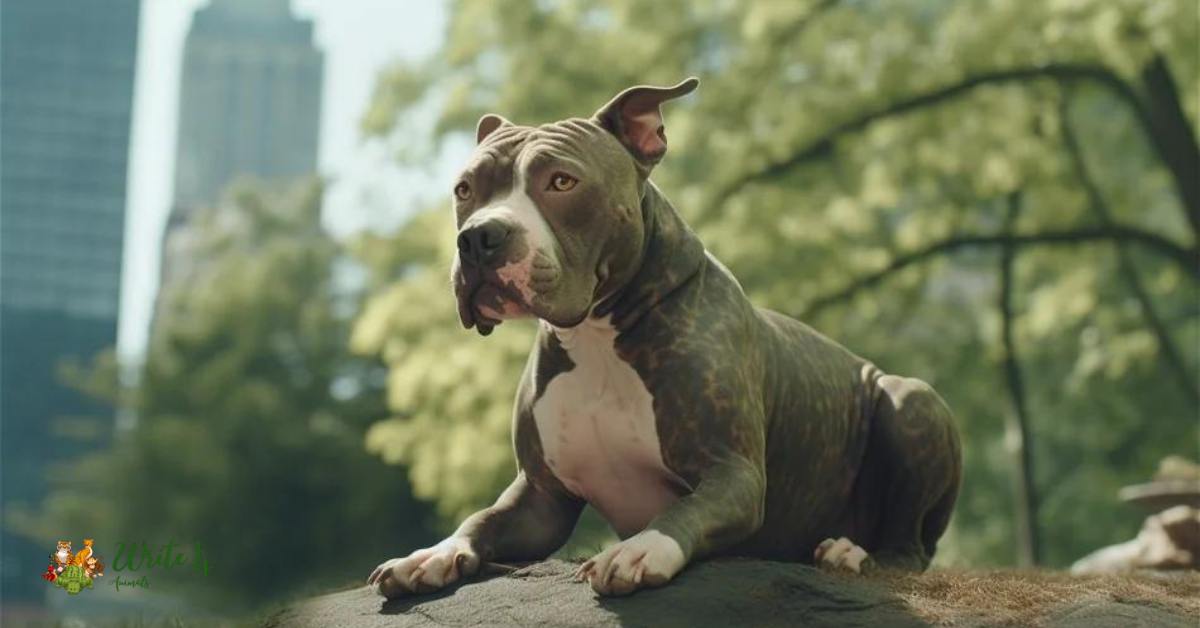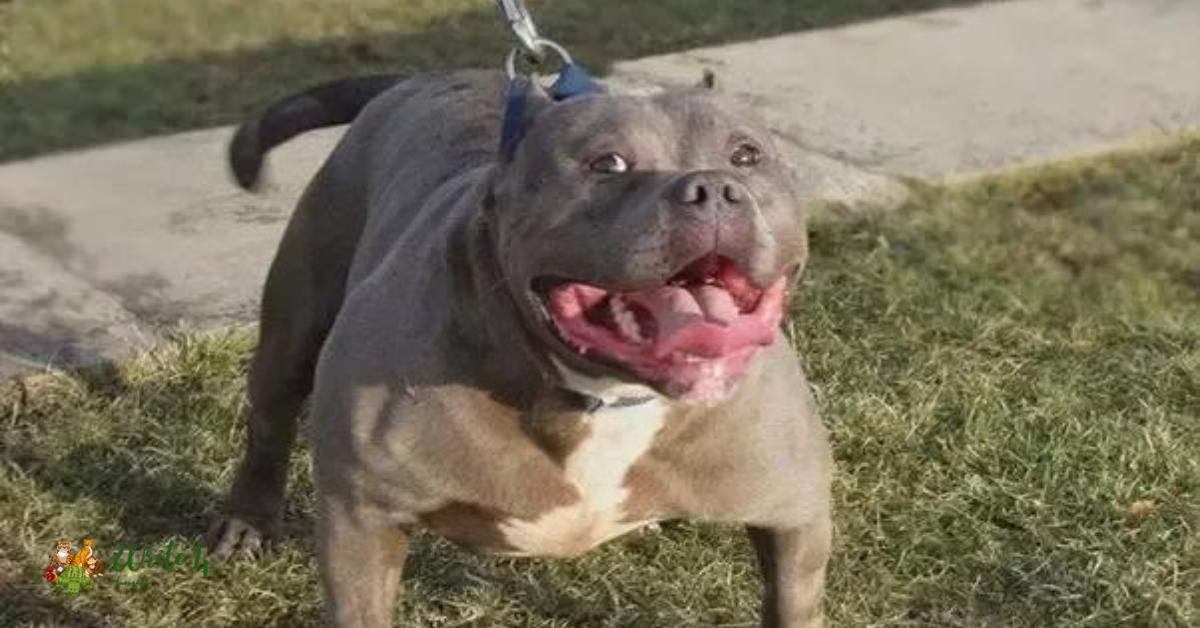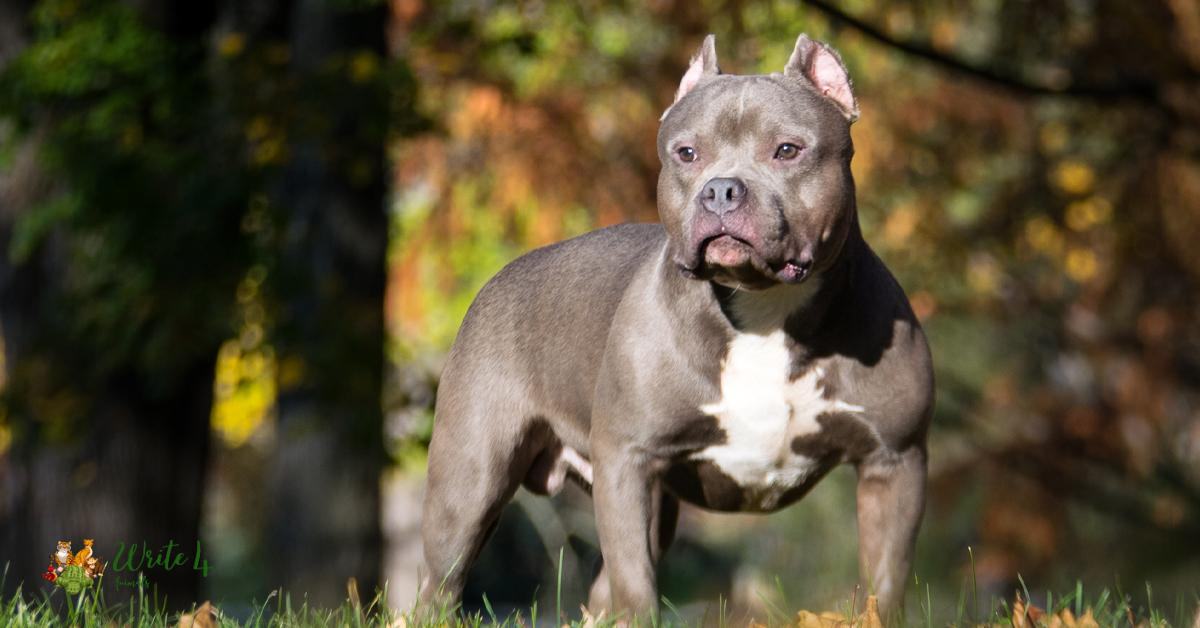Gator Pitbulls have become a topic of interest and discussion within the canine community due to their unique characteristics and controversial reputation. While some view them as misunderstood dogs with loyal and affectionate traits, others perceive them as potentially dangerous due to their breeding history.
In this comprehensive guide, we’ll delve into the origins, characteristics, temperament, care requirements, and misconceptions surrounding Gator Pitbulls to provide you with a well-rounded understanding of this fascinating breed.
Overview of Gator Pitbull
Origins and History of Gator Pitbull
Gator Pitbulls, originating from the American Pit Bull Terrier breed, have a storied history deeply rooted in the working dog tradition. The term “Gator” specifically refers to a bloodline within the Pitbull community, renowned for its distinctive traits and characteristics.
Their lineage can be traced back to selective breeding practices aimed at enhancing traits such as strength, agility, and loyalty. Over time, Gator Pitbulls have evolved into a distinct breed with a unique heritage, reflecting their ancestors’ roles as hunters, guardians, and companions.
Appearance of Gator Pitbull
Gator Pitbulls boast a muscular and athletic build, characterized by a broad head, powerful jaws, and a strong, well-defined physique. Their short coat comes in various colors, including brindle, fawn, black, and white, often with distinctive markings.

Despite their imposing appearance, Gator Pitbulls possess an undeniable charm and grace, further enhanced by their expressive eyes and alert demeanor. Their physical attributes reflect their lineage as versatile working dogs, capable of excelling in a variety of tasks and activities.
Temperament and Activities of Gator Pitbull
Known for their affectionate and loyal nature, Gator Pitbulls thrive in environments where they receive ample love, attention, and positive reinforcement. When properly socialized and trained from an early age, they exhibit a gentle and patient temperament, making them ideal family pets. Gator Pitbulls enjoy engaging in various activities that stimulate their minds and bodies, such as obedience training, agility exercises, and interactive play sessions.
Their high energy levels and enthusiasm for learning make them well-suited for participating in dog sports and activities that challenge their physical and mental abilities.
Personality and Behavior of Gator Pitbull
Gator Pitbulls are renowned for their loving and devoted personalities, forming strong bonds with their owners and families. They are known to be highly intelligent and eager to please, responding well to positive reinforcement training methods. Despite their powerful stature, pitbull gator often exhibit a gentle and affectionate demeanor towards children and other pets when properly socialized.
Their inherent loyalty and protective instincts make them excellent watchdogs, alerting their owners to potential threats while remaining steadfastly loyal and devoted companions. With proper care, training, and socialization, Gator Pitbull can thrive in a loving and nurturing environment, enriching the lives of their owners with their unique blend of strength, grace, and affection.
Gator Pitbull Price
The price of a Gator Pitbull can vary significantly depending on various factors such as pedigree, lineage, age, and breeder reputation. On average, Gator Pitbull Price ranges between $500 to $2000 or more. Dogs with exceptional lineage or show potential may command higher prices.
Various factors that affect the price of Gator Pitbull
Pedigree and Lineage: Gator Pitbulls with exceptional pedigrees and lineage, tracing back to renowned bloodlines, typically command higher prices due to their desirable genetic traits and characteristics.
Physical Attributes: Dogs with desirable physical attributes such as muscular build, symmetrical features, and unique coat colors/markings may fetch higher prices in the market.
Breeder Reputation: Reputable breeders who prioritize health, temperament, and ethical breeding practices often charge premium prices for their Gator Pitbull puppies, reflecting the quality and care invested in their breeding program.
Demand and Popularity: High demand for Gator Pitbulls, fueled by their reputation as loyal companions and working dogs, can drive up prices, especially in regions where the breed is sought after.
Training and Titles: Gator Pitbulls trained for specific purposes or with titles in dog sports or competitions, such as obedience, agility, or protection work, may be priced higher due to their advanced training and accomplishments.
Geographic Location: Prices for Gator Pitbulls can vary depending on the local market conditions, cost of living, and availability of breeders or puppies in a particular area. Urban areas with higher living expenses may have higher prices compared to rural areas.
Types of Gator Pitbull
Brindle Gator Pitbulls: Brindle Gator Pitbulls feature a coat pattern characterized by streaks or stripes of darker color against a lighter background. These stripes can vary in intensity and distribution, creating a unique and eye-catching appearance.
Blue Gator Pitbulls: Blue Gator Pitbulls have a distinctive blue or grayish coat color, often with a subtle or diluted appearance. This coloration is caused by a recessive gene and is highly sought after by enthusiasts for its striking and unusual hue.
Red Gator Pitbulls: Red Gator Pitbulls boast a rich and vibrant reddish-brown coat color, sometimes with variations ranging from deep mahogany to light copper tones. Their striking coloration adds to their overall appeal and uniqueness within the breed.
Black Gator Pitbulls: Black Gator Pitbulls exhibit a solid black coat color, sometimes with subtle variations or highlights. Their sleek and shiny black coats make them stand out and exude a sense of elegance and sophistication.
White Gator Pitbulls: White Gator Pitbulls have a predominantly white coat color, often with patches or markings of other colors such as black, brown, or brindle. Their crisp and clean appearance contrasts beautifully with their colorful markings, creating a visually stunning and distinctive look.
Fawn Gator Pitbulls: Fawn Gator Pitbulls feature a light tan or beige coat color, sometimes with hints of red or brown undertones. Their soft and warm coloration adds to their charm and appeal, making them popular choices among enthusiasts.
Health Issues of Gator Pitbull
Gator Pitbulls, like all dog breeds, are susceptible to certain health issues that prospective owners should be aware of. Some common health concerns associated with this breed include:
Hip Dysplasia: A hereditary condition that affects the hip joint, causing pain, lameness, and mobility issues.
Allergies: Gator Pitbulls may develop allergies to environmental factors such as pollen, dust, or certain foods, leading to skin irritation and discomfort.
Skin Problems: Due to their short coat, Gator Pitbulls may be prone to skin issues such as dermatitis, hot spots, and bacterial infections.
Heart Disease: Certain heart conditions, such as dilated cardiomyopathy, may affect pitbull gator, leading to reduced heart function and potential complications.
Obesity: Without proper diet and exercise, Gator Pitbulls may become overweight or obese, increasing the risk of joint problems, diabetes, and other health issues.
Genetic Disorders: Like many purebred dogs, Gator Pitbulls may inherit genetic disorders such as degenerative myelopathy, thyroid disorders, or certain cancers, emphasizing the importance of responsible breeding practices and health screening.
Maintenance Cost of Gator Pitbull
Owning a Gator Pitbull entails various maintenance costs that prospective owners should consider before bringing a new dog into their home. Here are five points to consider:
Food and Nutrition: Gator Pitbulls require a balanced diet to support their energy levels and overall health. High-quality dog food formulated for their age, size, and activity level can cost approximately $20 to $60 per month, depending on the brand and feeding regimen.
Veterinary Care: Routine veterinary expenses, including annual check-ups, vaccinations, and preventive medications, can amount to $200 to $500 or more per year. Additionally, unexpected medical emergencies or treatments for injuries or illnesses may incur additional costs.
Grooming: While pitbulls gator have short coats that require minimal grooming compared to long-haired breeds, they still benefit from regular brushing, nail trimming, ear cleaning, and dental care. Basic grooming supplies such as brushes, nail clippers, and shampoo may cost around $50 to $100 annually.
Training and Socialization: Investing in obedience training classes and socialization activities is crucial for shaping a well-behaved and well-adjusted Gator Pitbull. Training costs can vary depending on the trainer or facility, ranging from $100 to $500 or more for a series of classes or private sessions.
Supplies and Accessories: Other ongoing expenses include purchasing essential supplies such as a collar, leash, food and water bowls, bedding, toys, and grooming tools, which can add up to approximately $100 to $300 initially, with occasional replacements or upgrades over time.
Care Tips for Gator Pitbull
Socialization
Socialization is crucial for Gator Pitbulls to develop into well-rounded and confident dogs. Expose your puppy to various people, animals, environments, and situations from a young age to help them feel comfortable and secure in different settings.
Organize supervised playdates with other friendly dogs, introduce them to different sounds and experiences, and positively reinforce calm and appropriate behavior. Regular socialization throughout their lives will help prevent behavioral issues and ensure that your pitbull gator is friendly, outgoing, and well-adjusted.
Grooming
Despite their short coats, Gator Pitbulls benefit from regular grooming to keep their skin and coat healthy and free from debris and tangles. Brush your Gator Pitbull’s coat weekly with a soft-bristle brush or grooming mitt to remove loose hair and distribute natural oils.
Trim their nails every few weeks to prevent overgrowth and potential discomfort. Clean their ears regularly with a gentle ear cleanser to prevent wax buildup and ear infections. Additionally, brush their teeth several times a week with a dog-friendly toothpaste to maintain good oral hygiene and prevent dental issues.
Diet and Nutrition
Providing a balanced and nutritious diet is essential for the health and well-being of your Gator Pitbull. Choose a high-quality dog food formulated for their age, size, activity level, and specific dietary needs. Feed them regular meals at consistent times each day and avoid free-feeding to prevent obesity. Monitor their weight and adjust their portion sizes as needed to maintain a healthy body condition.
Provide plenty of fresh water at all times to keep them hydrated, especially during hot weather or after exercise. Consider incorporating occasional treats or supplements into their diet as rewards or for additional nutritional support, but be mindful of their calorie intake to prevent weight gain.
Training and Exercise Requirements
Gator Pitbulls are intelligent and energetic dogs that thrive on mental and physical stimulation. Start training your puppy as soon as you bring them home, using positive reinforcement techniques such as treats, praise, and consistency to reinforce desired behaviors.
Focus on basic obedience commands such as sit, stay, come, and down, gradually progressing to more advanced training exercises and activities.

Provide regular exercise to fulfill their energy needs and prevent boredom and destructive behavior. Aim for at least 30 to 60 minutes of daily exercise, including walks, runs, play sessions, and interactive games such as fetch or agility courses.
Engage their minds with puzzle toys, training sessions, or nose work activities to keep them mentally stimulated and challenged. With proper training and exercise, your Gator Pitbull will thrive as a well-behaved and happy companion.
Lifespan of Gator Pitbull
The lifespan of a Gator Pitbull typically ranges from 10 to 15 years, depending on various factors such as genetics, diet, exercise, and overall health care. Providing proper nutrition, regular exercise, routine veterinary check-ups, and a loving environment can contribute to a longer and healthier life for your Gator Pitbull.
Facts about Gator Pitbull
1. Gator Pitbulls are a specific bloodline within the broader American Pit Bull Terrier breed, known for their distinctive traits and characteristics.
2. They are often prized for their strength, athleticism, and loyalty, making them popular choices for working roles such as hunting, guarding, and companionship.
3. Despite their muscular appearance, Gator Pitbulls are affectionate and loving towards their owners and families, forming strong bonds and displaying loyalty and devotion.
4. Proper socialization and training are essential for Gator Pitbulls to ensure they develop into well-behaved and well-adjusted companions.
5. Gator Pitbulls require regular exercise and mental stimulation to thrive, enjoying activities such as obedience training, agility courses, and interactive play sessions.
6. Like all dog breeds, Gator Pitbulls benefit from responsible ownership practices, including proper nutrition, veterinary care, and attention to their overall health and well-being.
Misconceptions and Stereotypes of Gator Pitbull
Gator Pitbulls have often been the subject of unfair stereotypes and misconceptions perpetuated by media sensationalism and misinformation. It’s important to debunk these myths and recognize that breed-specific legislation and discriminatory policies unfairly target certain breeds, including Gator Pitbulls.
Responsible ownership and proper training are key factors in fostering positive relationships between dogs and their communities, regardless of breed.
Conclusion
In conclusion, Gator Pitbulls are a unique and misunderstood breed that deserves to be viewed through a lens of understanding and compassion. By educating ourselves about their origins, characteristics, temperament, and care requirements, we can appreciate the beauty and diversity of these dogs while promoting responsible ownership practices.
With proper training, socialization, and love, Gator Pitbulls can make wonderful companions and enrich the lives of their owners for years to come.
Frequently Asked Questions
What is a Gator Pitbull?
A Gator Pitbull is a specific bloodline within the American Pit Bull Terrier breed, known for its distinctive traits and characteristics, including strength, athleticism, and loyalty.
Are Gator Pitbulls aggressive?
Gator Pitbulls, like all dogs, can display aggression if not properly socialized, trained, and cared for. However, with responsible ownership and proper training, they can be loving and loyal companions.
How big do Gator Pitbulls get?
Gator Pitbulls typically range in size from medium to large, with males averaging between 18 to 21 inches in height and females averaging between 17 to 20 inches. Their weight can vary, with males typically weighing between 35 to 60 pounds and females between 30 to 50 pounds.
What are the grooming needs of Gator Pitbulls?
Gator Pitbulls have short coats that require minimal grooming. Regular brushing, nail trimming, ear cleaning, and dental care are recommended to keep them healthy and comfortable.
Do Gator Pitbulls make good family pets?
Yes, Gator Pitbulls can make excellent family pets when properly socialized, trained, and given love and attention. They are known for their loyalty, affection, and gentle nature towards their owners and families.
How much exercise do Gator Pitbulls need?
Gator Pitbulls are energetic and active dogs that require regular exercise to stay healthy and happy. Aim for at least 30 to 60 minutes of daily exercise, including walks, runs, play sessions, and training activities.
What is the bite force of a Gator Pitbull?
Gator Pitbulls are known for their powerful jaws and strong bite force, which is estimated to be around 235 to 250 pounds per square inch (psi).
Recommended
1. Plott Hound Pitbull Mix : Appearance, Pictures and more
2. Cane Corso Pitbull Mix 2023
